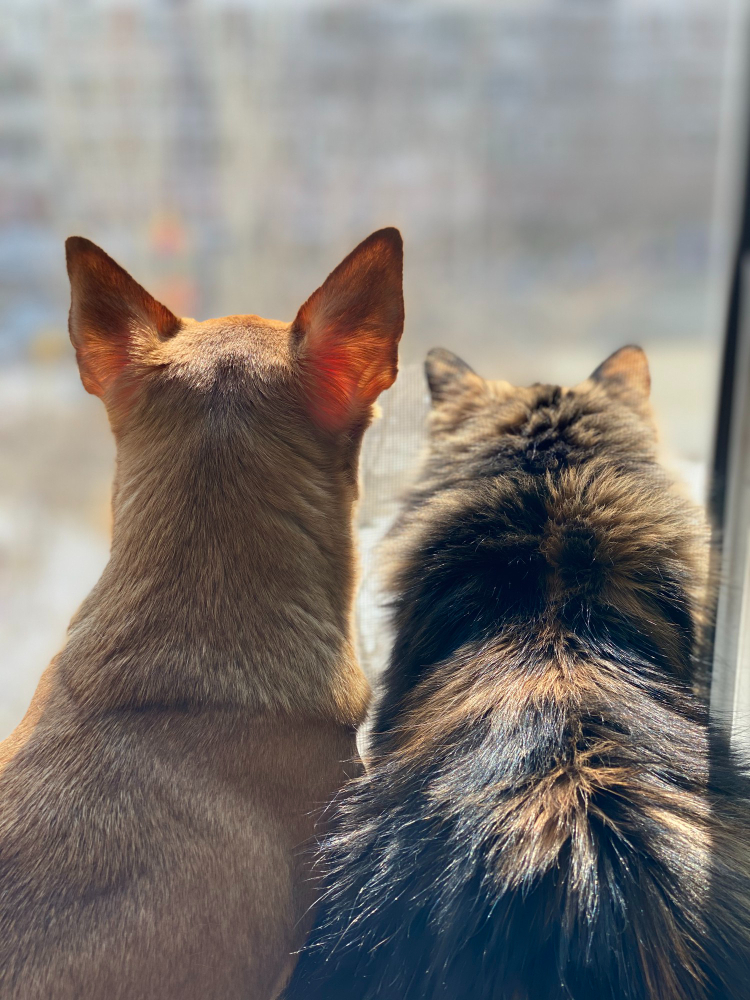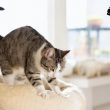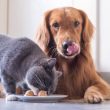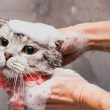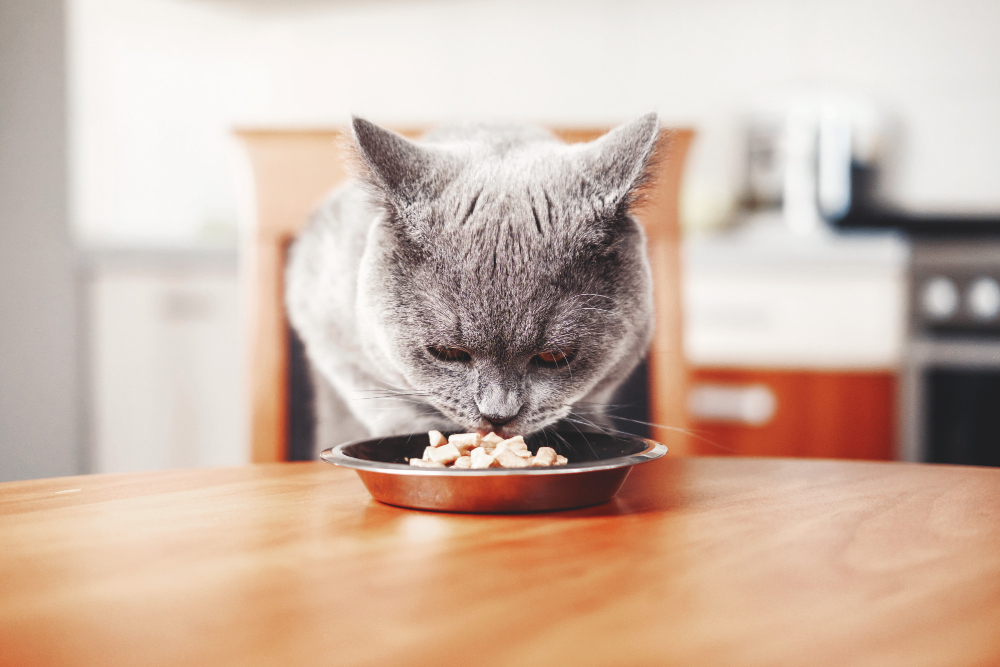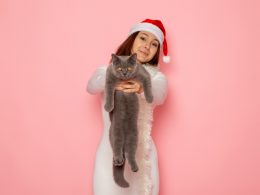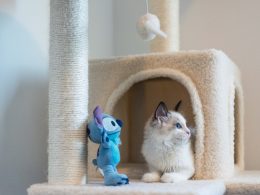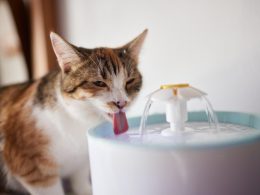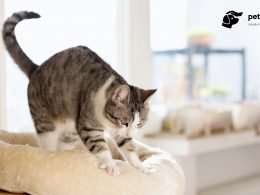Cats fed enough calories each day will always be on the lookout for more. Feeding a cat to the point of overfeeding, even if it’s a kitten below eight months old, is nearly always a mistake.
Cats fed already have a lower daily caloric requirement than those who must hunt, capture, and eat their food on their own. In addition, as cats get older, their activity level and metabolic rate decline significantly, but their appetite remains the same.
Cats, like all carnivores, hunt and eat their prey in little portions throughout the day. Therefore, it is a formula for weight gain if a dry food dish is readily available for the cat to eat many short portions of a high-calorie feed.
Feeding a cat is a training activity for the cat and the person feeding it. To receive their food, cats typically focus on the mannerisms and actions of the person feeding them.
Cats don’t require a wide variety of flavors and textures. So when a cat shows any sign of reluctance to consume the food offered, its owners learn quickly to supplement it with something different.
Feeding canned or dry food simultaneously is the quickest and easiest way to have and keep an overweight cat. If you’ve just fed your dry cat food, likely, they will happily stow away some canned food.
Is It Better to Overfeed or Underfeed a Cat?
Overfeeding your cat can have a long-term detrimental effect on their health. Treats are suitable for cats occasionally, but they shouldn’t make up more than 10% of their daily calorie consumption.
As with overfeeding, underfeeding a cat may cause malnutrition; much like overfeeding, if you notice your cat is losing weight, you should visit your veterinarian about your cat’s caloric and nutritional requirements.
With numerous cats in the house, ensuring they receive the proper nutrition is essential. Unfortunately, your cat may be stealing food from other cats in the house, even if you’re unaware.
If your cat’s body composition changes or you can see their ribs, they may not be eating enough. For example, when you notice your cat meowing or weeping at meals, it could signify that they’re malnourished.
When you feed your cat at regular eating throughout the day, you’re limiting the amount of food you’re giving it. Both wet and dry cat foods can be fed to your feline pet in this manner.
While kittens need to be fed three times a day, an adult cat can get by with one or two meals daily. If your cat has reached adulthood and is healthy and disease-free, feeding them once a day is just fine.
What Happens If a Cat Is Underfed?
If you don’t feed your cat enough, it will get malnourished and sick. Adult cats in good health should maintain a healthy weight that does not fluctuate too much from one day to the next. A veterinarian can adequately assess your cat’s weight.
Some cats refuse to eat if food is served too near where they go potty or near something that makes them nervous. Your cat may be overweight if its ribs are hard to feel, which you can do to determine its weight.
If your cat’s ribs and vertebrae are visible, he may be underweight and otherwise unwell. If you have doubts about your cat’s weight, consult a veterinarian or other pet care professional.
If you want your feline pet to be fit and healthy, you need to feed him items made from meat: age, exercise level, and health status all impact a person’s nutritional requirements. Cats with nutritional requirements are no exception.
Measuring meals can be simplified if you refer to the feeding recommendations found on the package of the food you’re purchasing. As a result, the amount you feed your cat will vary based on the cat’s age, breed, weight, and activity level.
Why Is My Cat Eating Less but Gaining Weight?
When it comes to your cat’s weight, you can’t only rely on the numbers on the scale to tell you if they are obese. That’s why an overall health score is commonly used by veterinarians instead of a quantitative approach.
The veterinarian will assign a score varying from one to nine depending on the quantity of body fat they can see and feel. It’s time to support your cat to slim down if their body condition score is between six and nine, which indicates that the cat needs to lose weight.
Behind the ribs, which have a tiny waist, there ought to be a taper. You can tell when your cat is overweight if you don’t see a waist on them.
Dietary restrictions, exercise regimens, or screenings for medical concerns can all be recommended by your veterinarian if your cat needs weight loss so that the pointer on the scale moves in the proper direction.
Your cat’s weight should be monitored in addition to how much food they eat, how many meals they have each day, and how much exercise they get each day. A damaged gut biome or a specific disease that demands consultation with the vet could be to blame for both symptoms.
Why Would a Cat Suddenly Gain Weight?
A sedentary lifestyle, boredom, and a lack of physical activity can contribute to obesity. For example, a cat can become overweight at one year of age if there is no or restricted outside activity.
Pet owners in multi-cat households may set out food for all the pets and expect them to limit their intake. When this doesn’t work, the dominant cat tends to overeat, which raises its risk of obesity.
A cat that consumes more calories than he expends in physical activity will gain weight. Likewise, if a sedentary cat is provided a steady diet of food throughout the day, it will quickly pile on the pounds.
Cats with hypothyroidism put on weight, become sluggish, and have pale coats because of their condition. When your cat’s thyroid gland cannot produce the hormones it needs to regulate its metabolism, this results in weight gain and a slow metabolic rate.
Your cat can become pregnant after a brief outside meeting. The young cat may be pregnant if it has a bulging belly; decreased activity; and a marked increase in hunger.
Reduced-carbohydrate, high-protein diets are the most common, but high-fiber options are also available. In addition, snacks and treats that contain a lot of calories should be eliminated from your cat’s diet.





